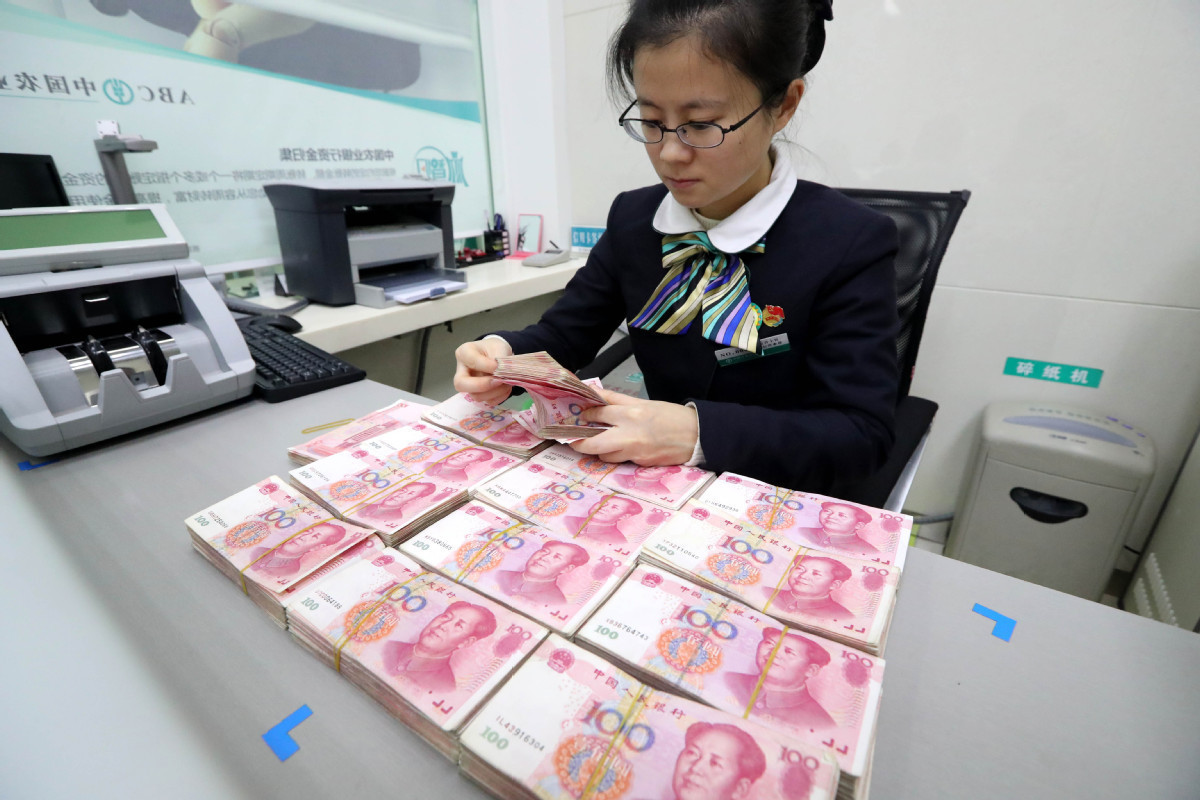Experts see ample tools to sustain growth


China may further increase its fiscal budget deficit and adopt more accommodative monetary policies to shore up growth if the economy faces greater uncertainties and renewed downward pressure in the second half of the year, former officials and economists said on Thursday.
Their remarks imply that China is likely to increase fiscal spending and further reduce interest rates to stabilize growth and achieve its objective of ensuring stability in key areas including employment.
Wang Zhaoxing, former vice-chairman of the China Banking and Insurance Regulatory Commission, said that China has ample fiscal and monetary policy tools to boost investment and demand as the country's inflationary pressure is relatively low, and it has more room to adjust its interest rates compared with other major global economies.
"There is still room for China to increase fiscal spending, expand its budget deficit and increase the issuance of central government bonds to further expand investment and consumption," Wang said at a news conference in Beijing.
Meanwhile, the People's Bank of China, the central bank, could increase the supply of low-interest rate credit to businesses and create a more favorable liquidity environment to facilitate the issuance of government bonds and help companies get through the difficult times amid the COVID-19 outbreak, he added.
So far, China's policy stance has appeared to be relatively restrained and cautious while other major economies have adopted aggressive easing and extremely low interest rates to boost growth and offset the economic shocks generated by the COVID-19 pandemic.
Beijing has abandoned setting a specific GDP target for this year and shifted its policy priority to ensuring employment, people's livelihoods and the survival of businesses.
The government has raised its fiscal deficit ratio to at least 3.6 percent of GDP this year in the Government Work Report and pledged to issue 1 trillion yuan ($140 billion) in special treasuries.
"If necessary, there is still the possibility for the government to further increase its fiscal deficit and adopt more proactive measures to support the economy," said Liu Huan, counselor of the State Council and a professor of taxation at the Central University of Finance and Economics in Beijing.
Economists believe that the Chinese economy is on a sound recovery track, which is borne out by the improving economic data. Total social financing in May rose strongly by 3.19 trillion yuan, mainly driven by the issuance of government bonds and the growth of new corporate loans, according to the PBOC.
Some economists expect that the country's economy will rebound strongly in the fourth quarter, with GDP growth reaching around 9 percent year-on-year. China is likely to achieve GDP growth of around 3 percent in 2020, they said.
But some warned about increasing external uncertainties and the possible escalation of trade tensions between China and the United States. Some believe that if the Chinese economy sees renewed downward pressure, Beijing may step up fiscal spending and monetary easing to stabilize the economy.
The growth of China's consumer price index, a main gauge of inflation, slowed for the fourth consecutive month to 2.4 percent year-on-year in May, indicating that domestic demand remains subdued and there is room for further monetary easing to boost consumption.
Wang, a former vice-chairman of the country's banking and insurance regulator, said that the strength of the Chinese economy lies in its vast consumer market, and future policies should focus on ensuring the adequate supply of high-quality products and services and boosting families' disposable incomes to drive up consumption.
Qu Tianshi, China economist at Bloomberg Economics, said that China's monetary policy is expected to remain accommodative for the rest of the year, and there are possibilities of a further reduction in interest rates and banks' reserve requirement ratio as well as a greater liquidity injection by the PBOC into financial markets.
But he said that aggressive easing by the central bank is unlikely and the PBOC will probably pay more attention to ensuring the accommodative monetary policy is effectively helping the real economy.





































